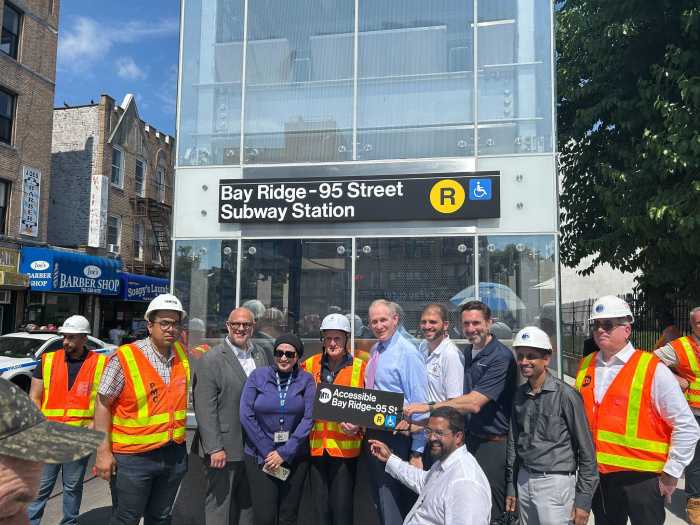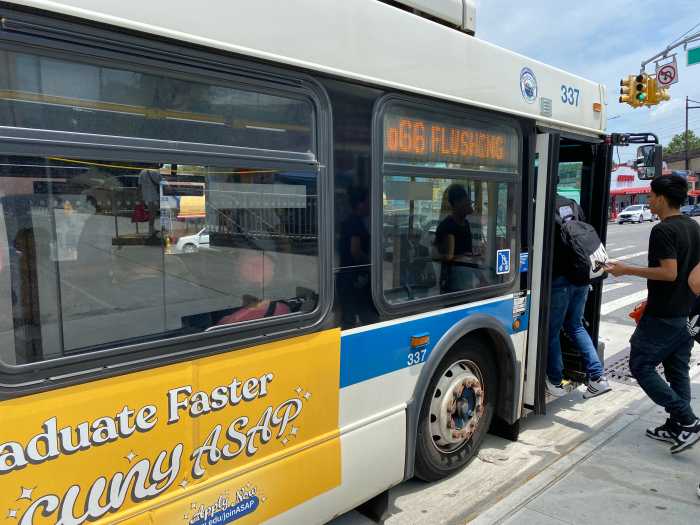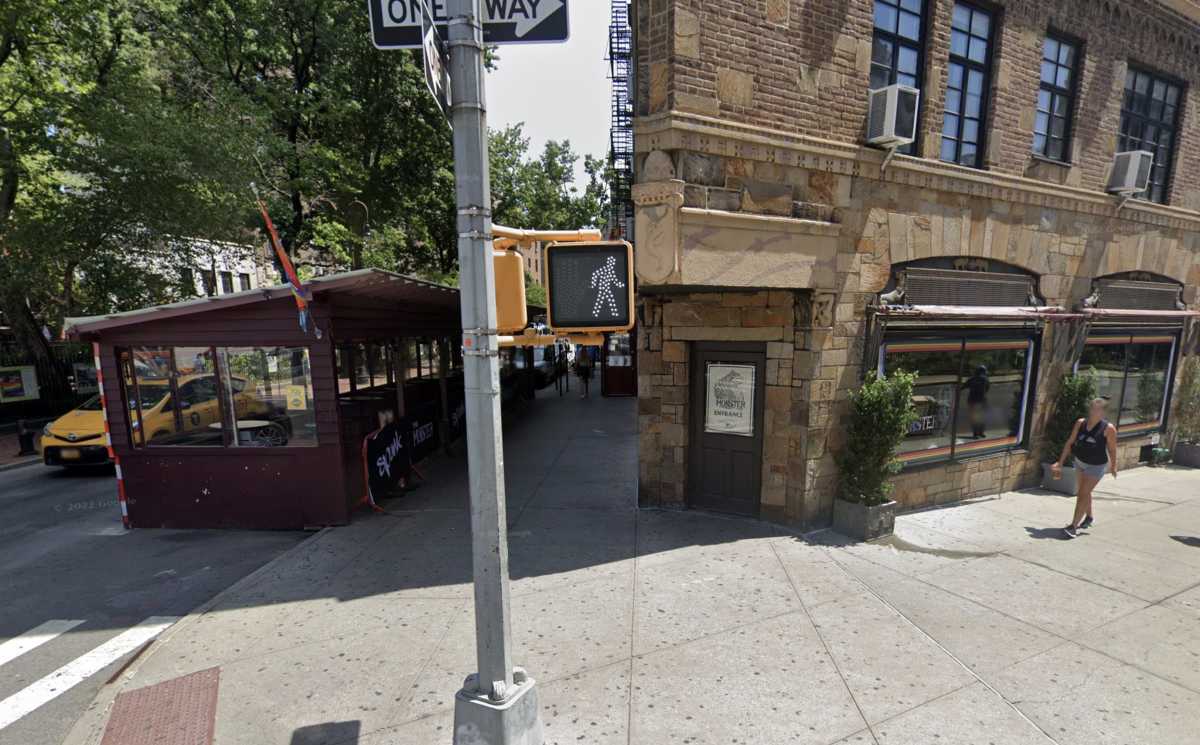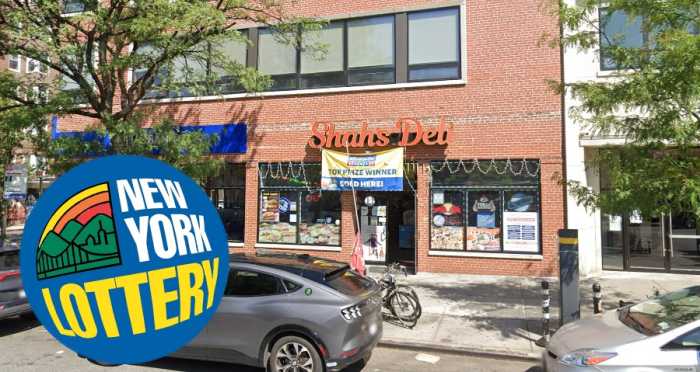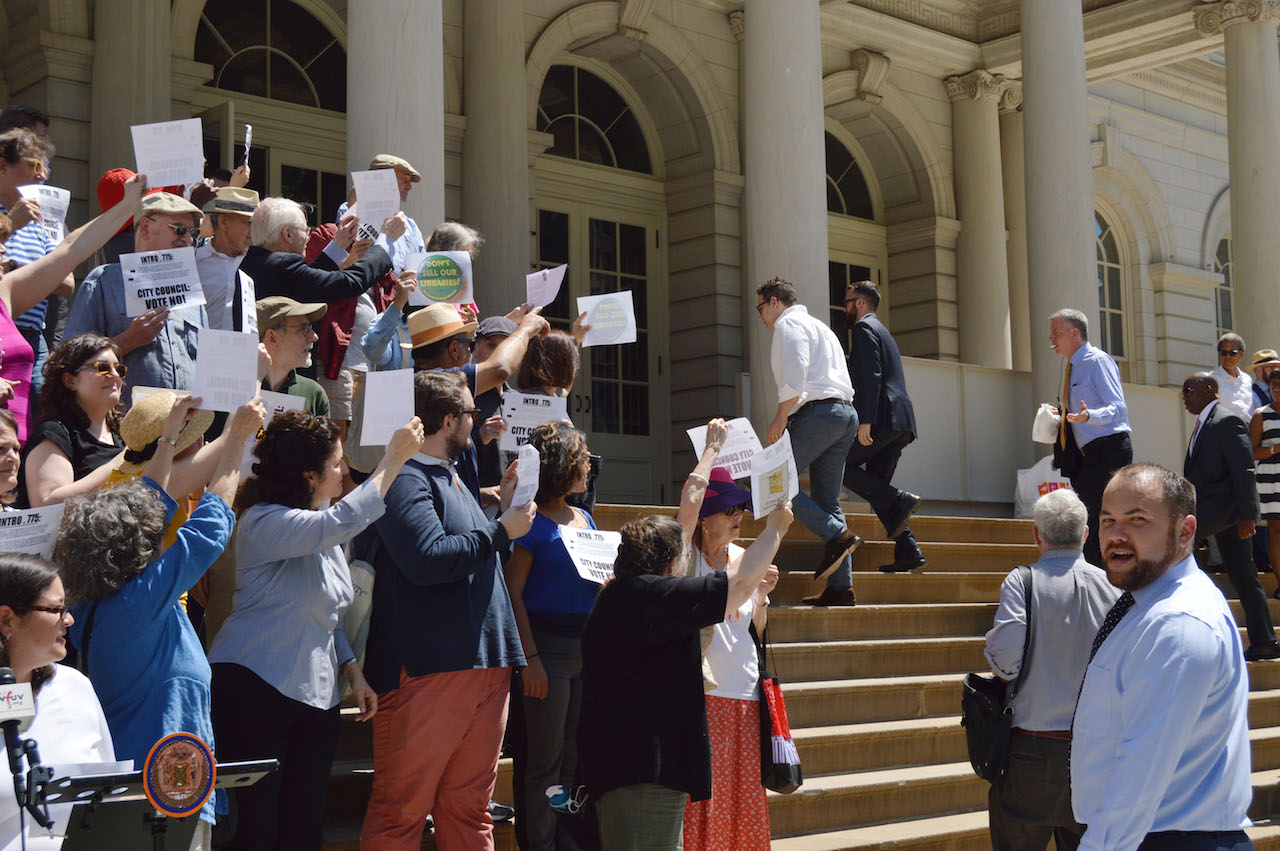
BY YANNIC RACK | A contentious bill that will put deadlines on the city’s preservation agency to designate landmarks within two years was passed by the City Council last week. There was heavy opposition from preservationists and even initial disapproval from the city’s Landmarks Preservation Commission itself — but the measure might be moot due to a loophole, according to its chief critics.
The legislation, Intro 775-A, mandates that L.P.C. vote within one year to designate proposed individual landmarks, and take no longer than two years to vote on proposed historic districts — limits that the bill’s opponents charge could lead to the loss of countless potential landmarks.
“We’re deeply disappointed. This is really an anti-preservation, pro-demolition measure,” said Andrew Berman, executive director of the Greenwich Village Society for Historic Preservation.
The measure has faced heavy opposition since it was introduced last year and was even slammed by L.P.C. Chairperson Meenakshi Srinivasan at a marathon six-hour hearing last September. Last-minute changes to the text were made two weeks ago to make the legislation more palatable to preservationists, before the Council passed it overwhelmingly on Wednesday.
But Berman and other preservation leaders say that the legislation might have no real teeth at all, since L.P.C. has the power to de-calendar and then re-calendar any properties it is considering for designation, which would essentially allow the commission to restart the dreaded deadline clock at any point.
“The L.P.C. believes they can sidestep the provisions of the bill and ensure that buildings aren’t removed from the calendar,” Berman said. “If they get to the 364th day and they still need more time in order to consider it…they can essentially restart the one-year clock.
“It shouldn’t come to that,” Berman said, “and it shouldn’t require the public to be vigilant about these impending deadlines. But the commission has told us quite clearly that they believe that they can do that, and that would be a way of avoiding the drop-dead deadline that this bill imposes.”
A Landmarks spokesperson didn’t respond to a request for comment on the loophole by press time, though tacitly endorsed the amended bill after the vote.
“We appreciate that the City Council has made changes to the legislation based on our testimony and suggestions,” Damaris Olivo said in a statement. “We believe the legislation as drafted will provide the flexibility necessary for the commission to fulfill its mandate.”
The bill, introduced last year, originally included a five-year moratorium on landmark consideration for any proposed properties that weren’t landmarked within the new deadlines.
As a concession to the bill’s opponents, that part of the bill was later removed, and the deadline for designating individual landmarks can now also be extended for another year, albeit only with the permission of the building’s owner. In many cases, however, owners have a strong incentive to keep their properties from being landmarked, which imposes strict guidelines for any alterations.
Arguing for the bill, its sponsors — Land Use Committee Chairperson David Greenfield and Landmarks Subcommittee Chairperson Peter Koo — said it would just speed up L.P.C.’s designation process and avoid a pileup of backlogged properties.
“Put simply, 775-A is a simple, sensible good-government reform,” Greenfield said. “The bill gives L.P.C. plenty of time to consider a landmark. It simply provides a dose of transparency to the landmarks process.”
A City Hall staffer familiar with the issue said on Wednesday that Greenfield had always been aware of the L.P.C. loophole. The staffer added that, in the councilmember’s view, the legislation’s intent — to make the landmarking process more transparent — would still be achieved, even if L.P.C. chooses to take action by delaying a final vote on any given property or district.
He added that the bill’s sponsors don’t think it will ever go that far anyway.
“We don’t expect this will ever come up,” the staffer said.
But Berman said the preservation advocates opposed to the bill, in fact, suggested it be changed to allow the commission to vote for such a delay directly, rather than through a loophole — a proposal that he said was shot down by Greenfield and his fellow sponsors.
“We all proposed that instead of making it this ridiculous thing, why not just write the law so that after one year the commission has to vote ‘yes,’ ‘no’ or to continue to consider?” Berman said. “Now they have to take this convoluted action of de-calendaring and re-calendaring. But they refused.”
Simeon Bankoff, executive director of the Historic Districts Council and another chief critic of the measure, said preservation groups only discovered the loophole earlier this week — though the City Hall source claimed the issue was familiar to all involved from the start.
“This was told to us through Council sources earlier this week, before the Land Use Committee meeting on Tuesday, and we confirmed it with sources at the L.P.C.,” Bankoff said. He added that he thinks the bill’s sponsors’ refusal to consider amending the legislation belies the idea that it will make the landmarking process more transparent.
“I think [the loophole] speaks to the fact that this was unnecessary legislation,” the preservationist said. “Mr. Greenfield refused to consider the amendment we were pushing earlier this week,” which would have given L.P.C. the chance to vote to keep considering a property after the deadline. “That would have actually brought transparency and accountability,” Bankoff said.
A spokesperson for Councilmember Corey Johnson, whose district includes Greenwich Village, said the councilmember was aware of the loophole, but that the councilmembers opposed to the bill were still unsatisfied with it.
“They didn’t feel like [the loophole alone] would offer adequate protection,” said Johnson aide David Moss. “There are certain administrative issues when the L.P.C. moves to just de-calendar and re-calendar right away.”
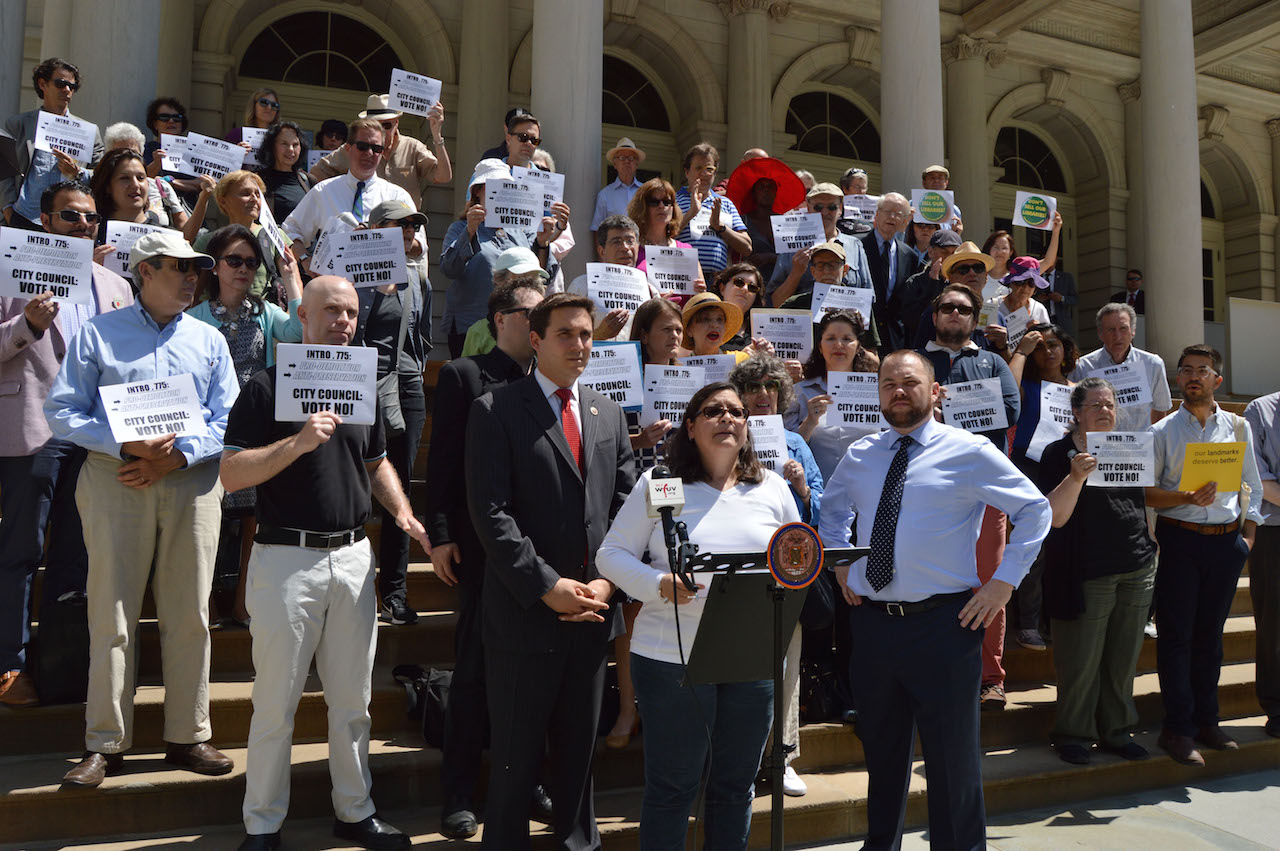
At the initial six-hour public hearing on the bill last fall, L.P.C. Chairperson Srinivasan admitted that while the landmarks process could be optimized, the commission itself was best equipped to make any changes to it.
“We believe the proposals are unworkable and would undermine the landmarks law,” she told the councilmembers last year. “We support the underlying goals, but we believe they are best addressed internally.”
The councilmembers opposing the measure — which the Council passed by 38 votes to 10 —continued to criticize the imposition of what they called “arbitrary” deadlines this week, since many iconic landmarks took years, and sometimes decades, to be designated.
In fact, L.P.C. only this year dealt with a 95-buildings backlog that included some properties that had languished on its calendar since the original Landmarks Law, which established the commission in 1965.
Councilmember Rosie Mendez, whose district includes the East Village, was unsatisfied with the bill, even with the changes.
“I know we need timelines — and 20 years is too long,” she said. “But for me, one year is just not enough, even with an option to extend it for another year. I feel like we should be getting this right the first time.”
Mendez and Johnson joined protesters on the steps of City Hall on Monday to oppose the measure.
Before casting his vote against Intro 775-A on Wednesday, Johnson listed the historic districts in his area, which includes the Greenwich Village Historic District.
“While I believe that this bill is well-intentioned, I do think that it has some serious flaws that need to be addressed,” he stated on the Council floor. “Nearly all of those historic districts were not voted on within two years. It took longer because not all historic districts are created equal… . Some take enormous amounts of time to do the research on, so that Landmarks can make an informed decision.”
Mendez also said that, in addition to opposing the deadlines, she felt the whole process was fraught.
“My objections are based on two counts,” she said. “One, deficiencies in the bill, I would have liked to see more time. My other concern is about process. There was a hearing on this back in September. Changes to the bill were made since then, [but] the public has not had the chance to comment on the [revised] bill.”
Berman said that, despite the loophole, the legislation was still bad news for historic preservation because it would likely require significant effort from preservation groups to actually get the L.P.C. to use the loophole.
“Even with that option,” he said, “the passage makes it worse, not better, because it will require extraordinary vigilance.”
Added Bankoff, “It’s hard enough to get the L.P.C. to consider a specific building or neighborhood.”
The preservationists also note that, had the bill’s deadlines previously been in effect, many of the city’s most beloved buildings — like Grand Central Terminal or even Rockefeller Center — could now be history.
“More than half of the buildings that were landmarked over the past 50 years would not have made these deadlines,” Berman said.



